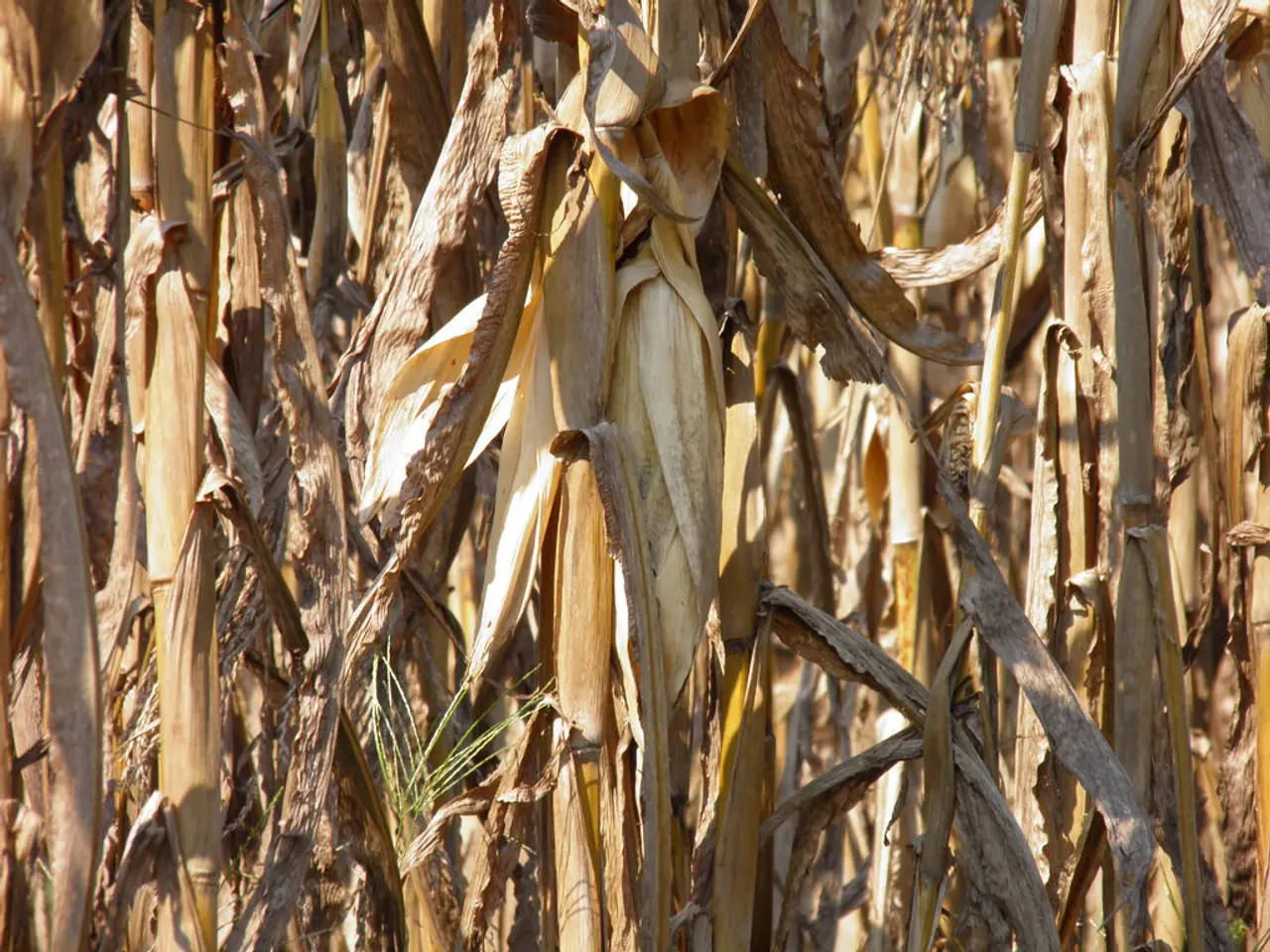Threatening rain poses a risk to the grain harvest in Saxony-Anhalt - Harsh weather endangers the yield of grains in Saxony-Anhalt
In the heart of Germany, the state of Saxony-Anhalt is facing a challenging harvest season due to persistent rain. More than half of the winter wheat is still in the fields, and the state farmers' association has expressed concerns about the potential consequences for the grain harvest.
The relentless rain is washing out starch from the grain, causing a decrease in quality. This starch degradation or loss negatively affects the yield and processing quality of the grain. The excess moisture also increases the risk of mold and fungal infections in grains, which directly reduces grain quality and storability.
Harvesting wet grain increases energy costs, as grains typically need more drying before storage to prevent spoilage. This makes drying processes more energy-intensive and costly, a concern that farmers in Saxony-Anhalt are beginning to face.
Dark spots on wheat stands are a telltale sign of mold infection, and the issue has already been identified in some regions of Saxony-Anhalt. Mold infection can decrease the quality of the grain yields, potentially rendering them unsuitable for human consumption and limiting their use to animal feed.
Preparations to resume harvesting are underway on many farms, with hopes for a change in the weather. If the weather remains sunny, most of the crops in Saxony-Anhalt may be harvested. However, without immediate improvement, the grain harvest in Saxony-Anhalt remains at risk.
While specific regional data for Saxony-Anhalt in 2025 is not available, such impacts are well-documented agronomic concerns in temperate grain-growing areas with wet harvest conditions. For more precise information, consulting agronomy research focused on Saxony-Anhalt or regional agricultural extension service reports could yield more detailed insights.
The farmers' association in Saxony-Anhalt has expressed hope for a change in the weather, which would help mitigate these challenges and ensure a successful grain harvest. Combine harvesters have been idle frequently in the past two weeks, and the resumption of the harvest from the middle of the week will be a crucial step towards overcoming these difficulties.
Cereals, specifically winter wheat, are struggling due to the persistent rain in Saxony-Anhalt, and these weather conditions could lead to increased use of cereals as animal feed instead of human consumption. This is because the excess moisture is increasing the risk of mold and fungal infections, which degrade the quality and storability of the grains. Additionally, the farmers in Saxony-Anhalt are concerned about the excess energy costs linked with harvesting and drying the wet grain, as such conditions often necessitate more drying before storage to prevent spoilage.








